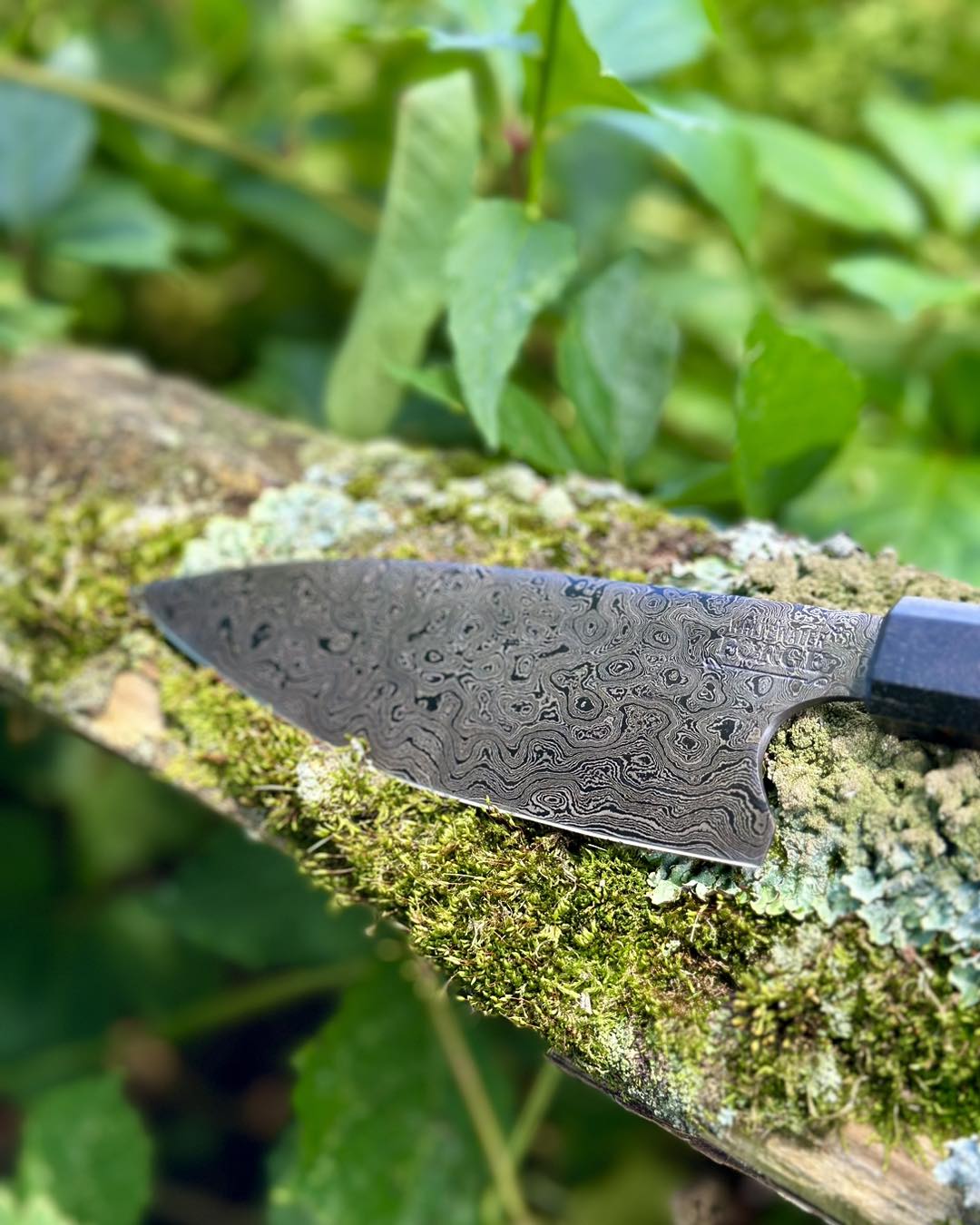Knife Making Classes
An Introduction to Forging Chefs Knives
Class details
Duration: 7 to 9 hours
Cost: $450.00
In this hands on class, you'll make your own 9 inch chefs knife from 1095 high carbon steel. Included in this one on one instruction you will learn all of the steps to forge a knife from start to finish. You will select your handle material from a collection of stabilized woods, or you can also chose carbon fiber that come in many different colors and patterns. 
One-on-One Classes
Classes are held one-on-one and scheduled to fit within my shop hours. On average, making your chef’s knife takes between 4–8 hours of total build time.
Shop Hours:
Monday: 10AM - 4 PM
Friday: 10 AM – 4 PM
Sunday: 10 AM – 4 PM
Some Saturdays may be available please check with me to confirm. If you’d like to work past 4 PM, that can be arranged as well.
This is the template for the knife you will be making in this course.

Hunter Knife Making course
class details
Duration: 6 to 8 hours
Cost: $400.00
In this immersive hands on class, students will forge and finish their own custom hunting/skinning knife from high carbon steel. The course is designed to guide students through the complete knife-making process, from initial design to final fit and finish.
Students will begin by drafting a detailed blade profile, learning how blade geometry affects cutting performance and control. From there, we move to the forge to hand forging the blade, focusing on establishing the point, distal taper, and bevels.
Once forging is complete, students will learn proper heat-treatment techniques to ensure a durable, functional blade. Each knife will be oil-quenched in Parks 50 quenching oil, followed by controlled tempering to achieve the ideal balance of hardness and toughness for a working hunting knife.
The final stage of the class focuses on handle construction and ergonomics. Students will select their own handle material and pin configuration, then shape and sculpt a custom, hand-fitted grip tailored specifically to their hand. Emphasis is placed on comfort, control, and durability for real-world field use.
By the end of the class, each student will leave with a fully functional, handcrafted hunting knife and a solid understanding of the foundational techniques used in professional bladesmithing.
Before participating in these classes you will be required to fill out a registration form. this will be made available first arrive for your class. Full payment is required upon arrival for the course.
Here is some helpful into for your class.
Whitewater Forge Blacksmithing Course Safety Briefing.docx
If you are interested in taking a class There is a contract From at the bottom of the page.
If you have any questions or need further assistance, please feel free to contact us at whitmorem@icloud.com or by phone at 613-582-7442. I am always ready to provide expert advice and help you find the perfect piece.

Before learning how to forge a knife, it’s helpful to understand the history behind the craft. Blade smithing has been part of human history for millions of years. The earliest knives, dating back around 2.5 million years, were crafted from natural materials like rock, bone, and flint. These early blades were quite fragile and often broke with use.
Roughly 6,000 years ago, people began seeking out stronger materials for their tools, leading to the use of copper and, eventually, iron. During the time of the Roman Empire, iron became the most commonly used material for blades because it was both durable and widely available.

In modern times, bladesmiths typically work with steel, either forging their own or shaping blades from flat stock. While traditional blade smithing saw a decline during the Industrial Revolution, when mass production and improved steel manufacturing took over, the craft has experienced a resurgence among artisans and enthusiasts who appreciate the skill and artistry of hand-forged blades.

Timeline On Custom Knives
A minimum of two to four weeks turnaround is required on custom commissions. if you have any questions please feel free to contact us for more information.
